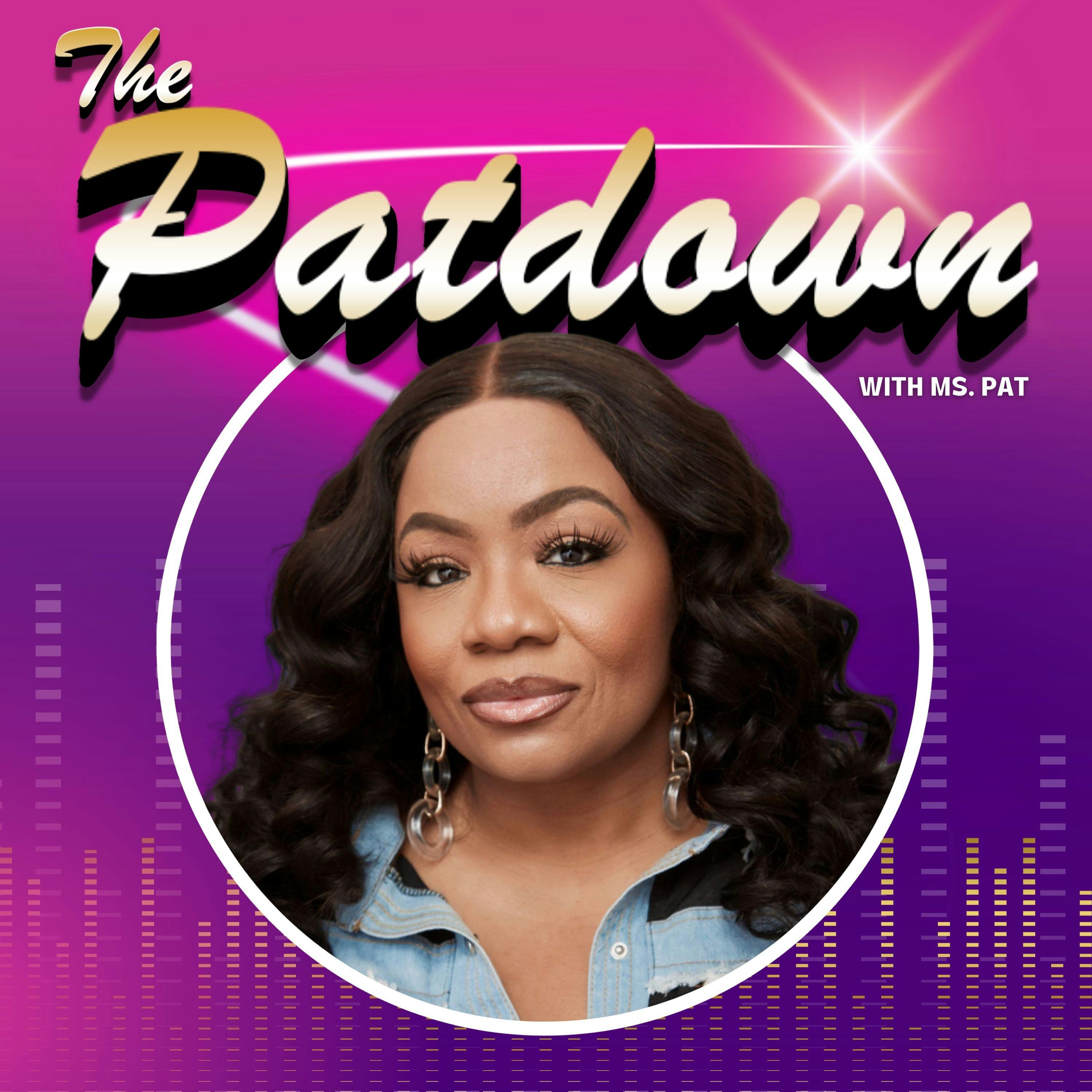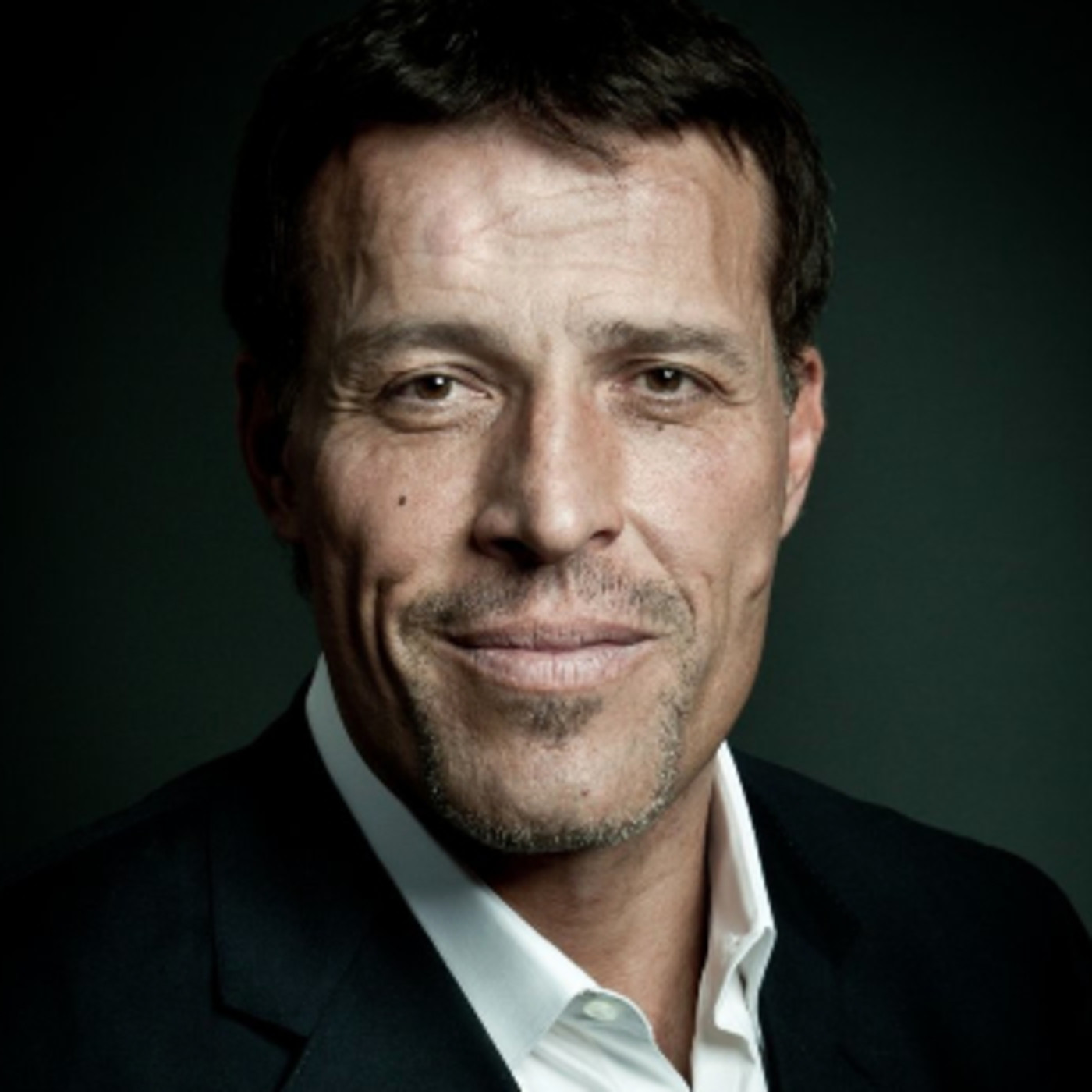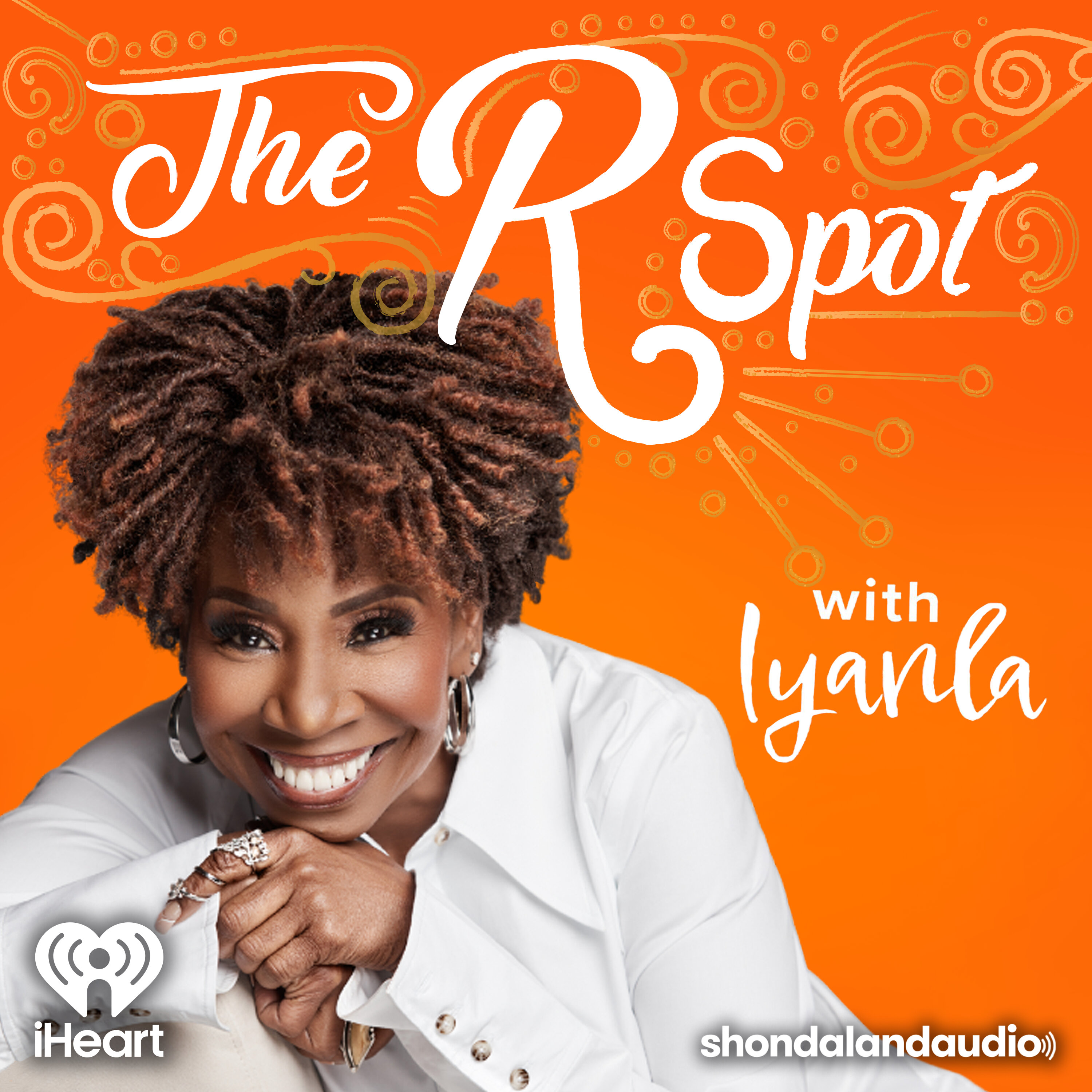
Motivational Fuel
Motivational Fuel is the podcast that ignites your inner drive and elevates your spirit. Hosted by Wondra Spencer—healthcare professional, veteran, CEO, best‑selling author, mother, wife, entrepreneur, and transformational coach—this show delivers the inspiration and clarity you need to thrive in every area of life.
Each episode features empowering conversations on:
- Strength and resilience
- Love and relationships
- Health and self‑care
- Motivation and mindset
- Lifestyle and finances
- Personal growth
- Spiritual alignment
Wondra and her guests share real stories, hard‑earned wisdom, and practical tools that help you rise with purpose and confidence. Whether you’re seeking direction, healing, or a fresh spark of motivation, Motivational Fuel gives you the energy to move forward boldly. Learn more at wondraspencer.com
Motivational Fuel
Understanding ADHD Across a Lifetime: Facts, Myths, and Everyday Strategies #ADHD
Forget the old stereotype of a “hyper kid who can’t sit still.” We dig into what ADHD really looks like across childhood and adulthood, why it’s more than attention and energy, and how the right mix of support can turn daily frustration into steady progress. Drawing on evidence and lived experience, we break down the three presentations of ADHD, common signs at different ages, and the executive function challenges that sit beneath missed deadlines, lost items, impulsive choices, and that familiar cycle of burnout and guilt.
We also get practical. You’ll hear the tools that consistently help—timed focus sprints, visible checklists, task chunking, buffer blocks, and environmental tweaks that lower friction. For kids, we talk visual schedules, movement breaks, positive reinforcement, and collaboration with teachers to formalize supports that actually fit the student. For adults, we cover planning around your energy curve, minimizing distractions, using accountability partners, managing impulsive spending, and building a weekly review rhythm that keeps priorities clear. Medication and therapy options, including stimulants, non-stimulants, coaching, and mindfulness, are explained in plain language so you can navigate choices with confidence.
Because it’s ADHD Awareness Month, we highlight ways to push back on stigma, share accurate info, and connect with resources—think CDC toolkits, local webinars, and community groups. Most of all, we center strengths: creativity, energy, resilience, and the drive to build systems that work for your brain. If you recognize yourself or someone you love in these stories, consider this your invite to seek evaluation, ask for accommodations, and try one small strategy today. If this resonated, follow along, share with f
Order My Bestseller on Bookshop!
Amazon Best‑Selling Author!
Wondra's Amazon Picks!
Best Support!
Cash App
Support my show!
Buy Me Coffee
You can sen
Amazon Best‑Selling Author!
Wondra's Amazon Picks!
Best Support!
Cash App
Support my show!
Buy Me Coffee
You can send me a cup of coffee and thank you!
Buzzsprout Referral
Disclaimer: This post contains affiliate links. If you make a purchase, I may receive a commission at no extra cost to you.
How to Follow:
Connect with me: Instagram | Facebook | TikTok | X (Twitter) | YouTube
Welcome to the Motivational Fuel Podcast. Happy Friday. And this is your weekly dose of inspiration, empowerment, and real talk. Whether you're tuning in from my YouTube channel or listening on your paved favorite podcast platform, I am so grateful that you are here with me today. I am your host, Wondra, the founder of Inspire and Drive LLC, and I am a firm believer in motivation from within. And thanks for joining me on the podcast. I can see you from all over the world. So thank you so much. And I want to help everyone uplift each other. If you're thinking about some clarity, a sense of purpose, a stability, you are at the correct podcast. And today we're going to explore some topics regarding love, health, self-care, lifestyle, finances, personal growth, and spirituality. And alongside the listeners like you, I hope this podcast today can give you some insight. So grab your some tea, some coffee, water, take a deep breath, and let's fuel your drive from inside. ADHD isn't just hyperactivity. In this episode, you will hear what most people miss about adult and children's ADHD. So ADHD stands for Attention Deficit Hyperactivity Disorder. Today's episode Understanding Children and Adults with ADHD Beyond the Hyperactivity. So what is ADHD? It is one of the most common neurodevelopment disorders of childhood. Neurodevelopment refers to the process of how the brain grows and develops. ADHD is usually first diagnosed in childhood and it can last throughout the adulthood. Children with ADHD, they may have trouble paying attention, controlling and postal behaviors. They may act without thinking about the results, and they can be overly active. So this month, we definitely want to get your support in ADHD, which is ADHD Awareness Month. So every year, this month is dedicated to shining a spotlight on ADHD, celebrating the strength, the challenges, and triumphs of those living with ADHD. According to the National Survey Appearance in 2022, an estimated 7 million, which is 11.4%, of United States children ages 3 to 17 have been diagnosed with ADHD. ADHD is a neurodevelopment disorder that affects attention and postal control activity levels, often beginning in childhood and to adulthood. So here's a deeper look into ADHD and how it impacts people. So what is ADHD? It is most one of the most common neurodevelopment disorders, is typically diagnosed in childhood, and can be persistent into adulthood. ADHD affects the brain, executive functions such as attention, memory, motivation, and self-regulation. So here are the three main ways in the types of ADHD. So the inattentive type, trouble focusing, forgetfulness, disorganization, the hyperactivity, impulsive type, excessive movement, impulsive actions, restlessness. And this can be a combined type, which is a mixture of inattentive and hyperactive impulsive symptoms. So some of your common symptoms in children, difficulty, paying attention, they're like fidgeting, they're squirming, interrupting others, forgetting tasks, or losing items. For the ADHD in adults can be lateness, trouble, prioritizing, risky behavior, relationship challenges, and memory issues. The causes and the risk factors, this can be linked to genetics, the differences in the brain structure and chemistry. And this that cause isn't known, but research suggests it's a hypergenetic component. Some treatments for ADHD can be manageable with a couple of combinations, such as behavior therapy medications like stimulants or non-stimulants, lifestyle changes, such as a routine, some exercise, mindfulness, like your meditation, and you can work with the school or your workplace accommodations. So living with ADHD, it doesn't define the person. It is one part of the neurological makeup. Many people with ADHD, they're creative, they're energetic, they're resilient. With the right type of support, they can thrive in school and work in with relationships. So for this month to raise awareness for everyone to support ADHD, you can share your wearing of own wrench, which can be on your social media page. So it's a month-long observance and it grew from awareness efforts into a combination campaigning and advocacy groups. The campaign purpose is to correct any misconceptions, promote access to the diagnosis and treatment, and celebrate diverse ADHD experiences. So by raising the awareness, it reduces the stigma, improves access to care across the lifestyle, and highlight ADHD often starts in childhood and it can continue into adulthood. So public education increase the awareness, awareness and the likelihood that people who need help and they can get evaluated and supported. So again, you can share personal stories, some facts. Go to your local CDC website. You can do hashtag ADHD, hashtag adhd awareness is the key. Find your local webinars, local talks, some podcasts, online panels and groups for support. And also put a page up. Some pictures of you wearing orange or orange ribbon show that you're showing some support of ADHD awareness. And it could be visible to others, your local organization within your local community. Look at the CDC website, ADHD website, and you can look into your schools, workplaces, and they can share some good resources. So on the CDC website, they do have some social media content there, they have support there, some health line of summaries, so you can celebrate ADHD. And if you need some more information about it. So with kids, patterns of inattention, hyperactivity, this can be problems that can be helped and solved with the help of the school, with friends, neighbors, they can support too. So with the inattentive, they can make mistakes, they're not listening, following instructions, they can lose things, they can be hyperactivity, such as they can't stay seated, they're running, they're climbing, excessive talking, blurting out answers. So preschool, three to five years old, very active, short attention span, and post of they can disrupt the teacher at times, elementary, school, difficulty, and structured learning environments, intention, follow instructions, and the teacher can be a little bit concerning for this. Adolescence, hyperactivity, and intention disorganized poor time management, and it's affecting their driving and academics. So with your social and school impacts, children they can struggle with classroom routines, completed homework, conflicts, self-esteem. They can have learning disorders, anxiety, and behavior issues. So this will be a great time to talk to your healthcare professional, which is your provider. And you can get your child evaluated from six months, starting at six months, 12 years old. The earlier the better, which will be helpful to support yourself and your child. If they're homeschooled, they're going to school on site. So definitely get that support from everyone. And you can discuss this with the pediatrician. If you're an adult, you can discuss with your internal medicine provider, any provider, any mental health professional. So some strategies for parents and teachers, a structure routine like printable schedules, written checklists, clear expectation, maybe some task chunking. So break up the assignments in short, manageable steps with some breaks in between and really celebrate the positive reinforcement and their little wins. If they did their schedule for today, they wrote out their schedule, really praise them and reward for those behaviors because they will help. In the environment, a lot of breaks will be helpful if you're focusing. Break up that break for 15 minutes, 30 minutes, another 15 minutes. Collaboration. So collaborate with the teachers, the classroom, and seek out some accommodation. So ADHD in the adults, persistent neurodevelopment condition, difficulties with attention, impulsive, then it can begin in the childhood, daily life and working relationships and home settings, some more symptoms similar to the children, traveling, focusing on tasks, poor organization, missing appointments, interrupting others, hasty decisions, making impulsive purchases, driving behaviors, restlessness, needs to move forward, cannot relax, hyperactivity may be lessened with age, internal restlessness often remains, and they're having mood swings, quick frustration, occasional burnout, or left low self-esteem. So the diagnosis can be diagnosed in the childhood, again, six months or longer, or they can be diagnosed in the adulthood. You can do the typical processes like an interview, listing out the checklist from your family, your childhood records, occurring conditions such as anxiety, depression, and learning disorders. So your treatment options, medications, stimulant, a non-stimulant when monitored by the provider or your clinician, some coaching, planning, organization, emoji, emotional regulation, and combine care with medications, plus the strategies and the skills training. So some couples, some coping techniques would be time management, blacking out that time, use a timer, which is pretty cool to use, focus period, building a buffer, buffer time. Maybe you're focused more in the morning versus the afternoon. Use a planner, use apps on your cell phone, dump out things in your brain, such as your tasks, and that can reduce working memory load. Break your tasks up into small steps, so very small sprints. Have a visible checklist, which is helpful. With your environment, minimal distractions, have accountability partners or teams, which is helpful. The movement, which has fidgety tools, make it purposeful, schedule some exercise, can help with the restlessness, plan and pause routines, really take a good look at your purchases. You can do some breathing exercise and meditation. So this will help out with the impulse controls. So when to seek help, definitely seek help before if you suspect ADHD relationships for your safety coping strategies, your provider condition can help with ADHD, some conditions, and some treatment. So definitely if you suspect your child or yourself or your loved ones having ADHD, you can reach out to them, help them get a provider, and help is there if you need it. And if you know someone not in your family or suspect, just lend a helping hand and you can share this podcast with them. So thank you for listening to this podcast and the ongoing support. I hope this has helped you understand ADHD in adults and children. So my upcoming episode, which is about the mammogram day, which is awesome for this month and breast cancer awareness. I do have a podcast that's about a few minutes long, not too long about breast cancer, but it has some great information about it. But I do want to talk about the mammograms. You can purchase my books on my website, local retails. Remember, you have the power to share your story and uplift your spirit. My podcast is brought to you by the Inspire and Drive team. If today's episode spoke to you, share with five others on these social media apps and YouTube. You can follow me at Wondra Spencer on Facebook, Instagram, TikTok, Twitter, LinkedIn, and Alignable. And I can see everyone from across the world. Keep sending those emails. I'll send one back. Until next time, protect your energy, honor your growth, and keep driving forward. Happy Friday. Thanks. Bye bye.
Podcasts we love
Check out these other fine podcasts recommended by us, not an algorithm.

Motivational Fuel
Wondra Spencer
Off-Balance Podcast | Faith, Family & Entrepreneurship
Dr. Brooks Demming
The Patdown with Ms. Pat
Ms. Pat
The Courtney Sanders Podcast
Courtney Sanders
Tony Robbins
Israel Guerrero
The Mel Robbins Podcast
Mel Robbins
